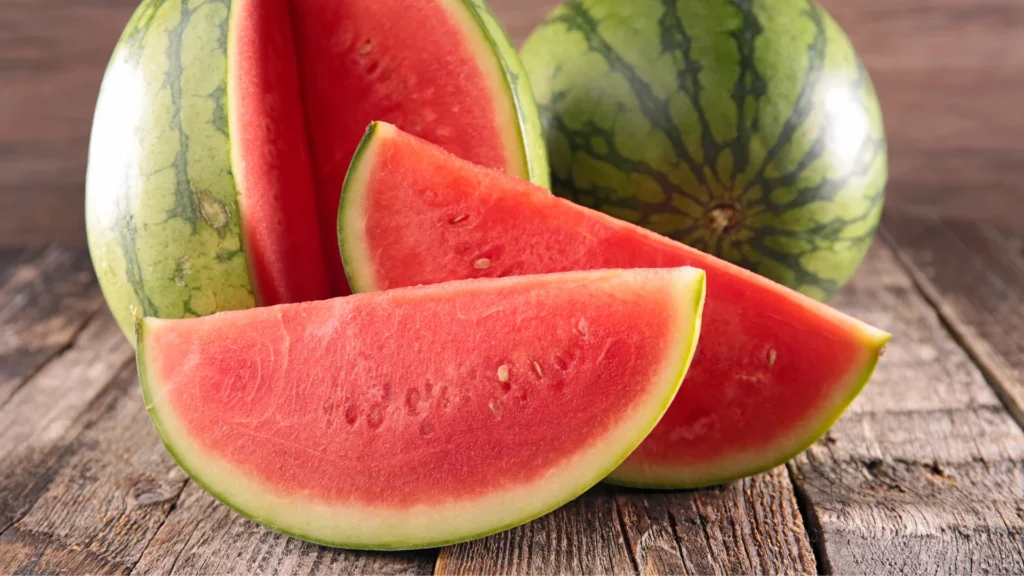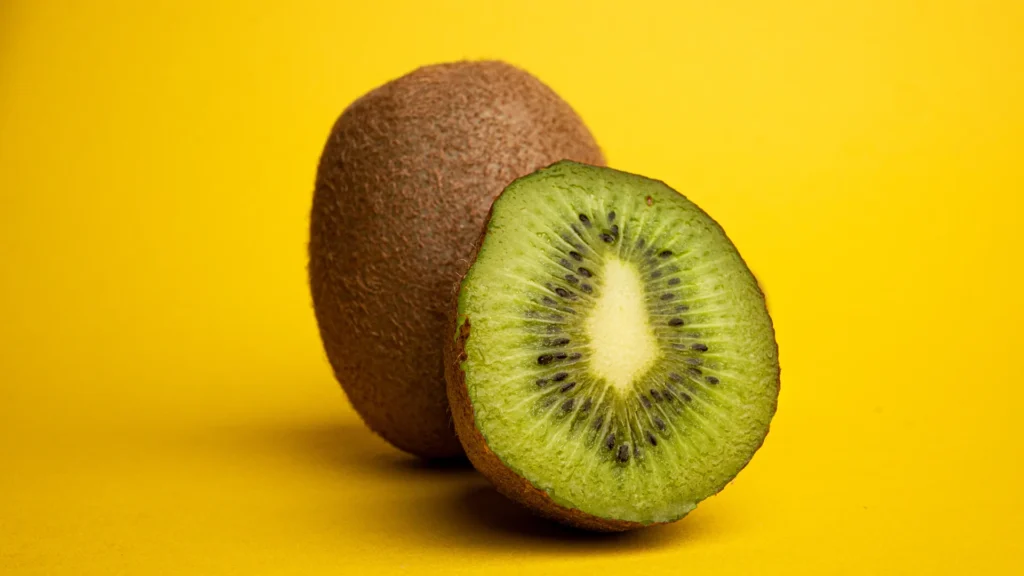As parents, we all want to give our little ones the best start in life, and that includes providing them with a nutritious diet. Fruits are an essential part of this, offering a rainbow of flavours and a wealth of vitamins and minerals. But which are the best fruits for toddlers?
In this article, we’ll explore the top fruits that are not only delicious but also packed with nutrients crucial for your toddler’s development.
Whether you’re dealing with a picky eater or a fruit enthusiast, understanding the best fruits for toddlers can help you make informed choices for your child’s diet.
How to choose the Best Fruits for Toddlers
When selecting the best fruits for toddlers, several key factors should guide your choices. Understanding these can help ensure that your little one gets the most benefit from their fruit intake.
Nutritional Value: The best fruits for toddlers are those packed with essential vitamins, minerals and fibre. Look for fruits rich in vitamin C, potassium and antioxidants, which support your child’s growing body and immune system.
Texture and Ease of Eating: Consider your toddler’s ability to chew and swallow. Soft fruits like bananas and ripe peaches are often easier for young children to eat than firmer options like apples.
Allergies and Sensitivities: Be aware of common fruit allergies, such as those to strawberries or citrus fruits. Always introduce new fruits one at a time and watch for any adverse reactions.
Choking Hazards: Some fruits, like grapes and cherry tomatoes, can pose choking risks if not prepared properly. Always cut these into small, manageable pieces for your toddler.
Sugar Content: While natural sugars in fruit are generally healthy, be mindful of the overall sugar intake, especially for dental health.
Pesticide Exposure: Consider choosing organic fruits or thoroughly washing conventionally grown produce to minimise pesticide exposure.
By keeping these factors in mind, you can confidently select the best fruits for toddlers that are both safe and nutritious for your little one.
10 Best Fruits for Toddlers
Bananas

Bananas are often considered one of the best fruits for toddlers due to their soft texture and sweet taste. They’re packed with potassium, vitamin B6 and fibre, supporting heart health and digestion. Bananas are also easy to serve – simply peel and cut into small, manageable pieces. For younger toddlers, you can mash bananas and mix them with cereal or yoghurt.
As your child grows, try offering banana slices as a finger food. You can also freeze banana chunks for a cool, teething-friendly treat. Bananas’ natural sweetness makes them an excellent addition to smoothies or as a topping for pancakes, providing a healthier alternative to sugary syrups.
Strawberries

Strawberries are among the best fruits for toddlers, offering a burst of vitamin C and antioxidants. These nutrients support immune function and overall health. When introducing strawberries, start with small amounts as some children may be sensitive to them.
Always cut strawberries into small pieces to prevent choking. You can serve them fresh, add them to yoghurt or blend them into smoothies. For a fun twist, try freezing strawberry puree in ice lolly moulds for a refreshing summer treat. As your toddler grows, encourage them to help wash and prepare strawberries, fostering independence and interest in healthy foods.
Blueberries

Blueberries are often hailed as one of the best fruits for toddlers due to their high antioxidant content and cognitive health benefits. They’re also a good source of vitamin C and fibre. When introducing blueberries, ensure they’re ripe and soft. For younger toddlers, you may want to cut them in half to prevent choking.
Blueberries make an excellent finger food and can be added to cereals, yoghurt or baked into muffins. Try freezing blueberries for a cool, soothing snack that can also help with teething discomfort. As your child grows, you can involve them in picking out blueberries at the shop or even growing them in your garden.
Apples

Apples are a classic choice among the best fruits for toddlers, offering a good source of fibre and vitamin C. They also contain quercetin, an antioxidant that supports brain health. When serving apples to toddlers, always peel and cook them until soft for younger children. As your toddler grows, you can offer thin, peeled slices of raw apple.
Applesauce is another great option, especially when made at home without added sugars. Try grating apple into oatmeal or yoghurt for added nutrition and flavour. You can also bake apples with a sprinkle of cinnamon for a warm, comforting treat that’s perfect for colder months.
Pears

Pears are among the best fruits for toddlers due to their soft texture when ripe and high fibre content, which aids digestion. They’re also a good source of vitamin C and copper. When introducing pears, ensure they’re ripe and soft. For younger toddlers, you can puree pears or offer them cooked and mashed.
As your child grows, try offering thin slices of ripe pear as a finger food. Pears can be poached in water with a touch of cinnamon for a sweet, healthy dessert. You can also grate pear into porridge or yoghurt for added nutrition. Pear sauce, similar to applesauce, is another great way to incorporate this fruit into your toddler’s diet.
Oranges

Oranges are considered one of the best fruits for toddlers due to their high vitamin C content, which supports immune function. They also provide fibre and folate. When introducing oranges, start with small amounts of fresh orange segments, ensuring all membranes and seeds are removed to prevent choking.
For younger toddlers, you can squeeze fresh orange juice and dilute it with water. As your child grows, offer peeled orange segments as a snack. You can also use orange zest to add flavour to baked goods or sprinkle it over yoghurt. Frozen orange segments can be a refreshing treat on hot days and may help soothe teething discomfort.
Peaches

Peaches are among the best fruits for toddlers, offering a good source of vitamins A and C, as well as potassium. They’re also naturally sweet, making them appealing to young palates. When introducing peaches, ensure they’re ripe and soft. For younger toddlers, you can puree peaches or offer them cooked and mashed.
As your child grows, try offering thin slices of ripe peach as a finger food. Peaches can be grilled or baked for a warm dessert option. You can also blend peaches into smoothies or mix them with yoghurt for a nutritious snack. During winter months, canned peaches (in juice, not syrup) can be a good alternative to fresh ones.
Mangoes

Mangoes are a tropical delight and one of the best fruits for toddlers, packed with vitamins A and C, which support eye health and immune function. They’re also rich in fibre, aiding digestion. When introducing mangoes, ensure they’re ripe and soft. For younger toddlers, you can puree mango or offer small, soft cubes.
As your child grows, try offering thin slices of ripe mango as a finger food. Mango chunks can be frozen for a cool, soothing treat. You can also blend mango into smoothies, mix it with yoghurt, or use it as a topping for whole grain pancakes or waffles. Dried mango (without added sugar) can be a convenient snack option, but offer it in moderation due to its concentrated sugar content.
Watermelon

Watermelon is a hydrating choice among the best fruits for toddlers, especially during warmer months. It’s low in calories but high in vitamins A and C. When introducing watermelon, ensure seeds are removed and cut it into small, manageable pieces to prevent choking.
For younger toddlers, you can puree watermelon or offer small, soft cubes. As your child grows, try offering thin slices of watermelon as a finger food. Watermelon can be blended into smoothies or frozen into ice lollies for a refreshing treat. You can also use a melon baller to create fun, bite-sized watermelon balls that are easy for little hands to manage.
Kiwi

Kiwi rounds out our list of best fruits for toddlers, offering an impressive amount of vitamin C and fibre. It also contains actinidin, an enzyme that aids digestion. When introducing kiwi, ensure it’s ripe and soft. For younger toddlers, you can scoop out the flesh and mash it.
As your child grows, try offering peeled kiwi slices as a finger food. Kiwi can be added to fruit salads, blended into smoothies, or used as a topping for yoghurt or cereal. For a fun presentation, cut kiwi in half and let your toddler scoop out the flesh with a small spoon. This not only makes eating kiwi enjoyable but also helps develop fine motor skills.
Start Your Toddler’s Fruity Adventure Today!

Adding the best fruits for toddlers into your child’s diet is a colourful and nutritious journey. By offering a variety of fruits, you’re not only providing essential nutrients but also encouraging healthy eating habits that can last a lifetime.
Start small, be patient and make fruit fun. Involve your toddler in selecting and preparing fruits to spark their interest.
With these top 10 fruits as your guide, you’re well-equipped to make informed choices for your toddler’s diet.
Embrace the natural sweetness and goodness of fruits, and watch your little one thrive on these nutritious treats!
Read These Next:
What are the Best Fruits to eat in the Morning?
What are the Best Fruits to Juice?
How to Add More Fruits into Your Diet



